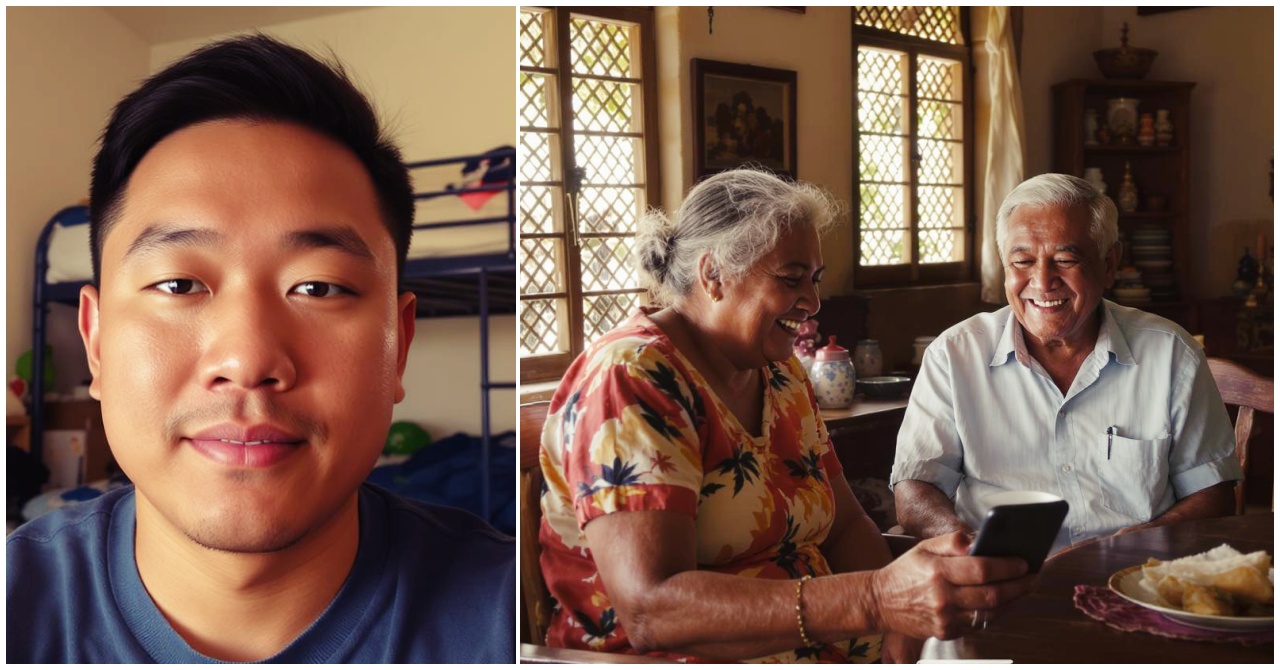You may be thousands of miles away, but your heart is never far from home. As an OFW, supporting aging parents is one of the biggest reasons we work abroad in the first place. Yet, over time, support means more than just sending money—it means understanding their changing needs, being emotionally present, and finding ways to care even when you can’t be physically there.
Here’s how we can do that better.

Understanding the Challenges of Aging Parents
Aging isn’t just about getting older—it’s about needing more care in ways that may not always be visible. Many older parents:
- Live with chronic illnesses
- Struggle with mobility
- Experience loneliness or a loss of independence
- May need help managing medical visits, finances, or even just emotional support
Knowing these challenges helps us respond with more than just money—it allows us to offer real, compassionate care from afar.
Clarify Your Role as a Long-Distance Caregiver
You can’t do everything, but you can be clear about what you can do. Define your role so other family members know what to expect from you:
- Financial Manager – Handle bills, remittances, and emergency funds
- Decision-Maker – Help arrange caregivers or medical services
- Emotional Supporter – Offer regular check-ins and moral encouragement
- Info Tracker – Keep health records, medicine schedules, and appointments organized
- Paperwork Helper – Support with insurance, benefits, and permits
Being clear with your role avoids misunderstandings and prevents tasks from being missed.
Communicate Consistently and Meaningfully
Distance doesn’t mean disconnection. These small gestures go a long way:
- Schedule weekly video calls—even short ones count
- Send voice notes, photos, or even old-fashioned letters
- Teach parents how to use messaging or video apps
- Set up a group chat with siblings to keep everyone in the loop
Even a daily “good morning” message can be the highlight of your parent’s day.
Ensure Access to Quality Healthcare
Proactive health planning saves stress (and money):
- Assign a trusted family doctor for regular checkups
- Review medications and create a chronic care plan
- Invest in health insurance to avoid huge hospital bills
- Consider hiring a home nurse or caregiver for daily support
Stay involved in medical decisions, even from afar. It shows you care deeply.
Manage Finances and Guard Against Scams
Protect their money the way they protected yours:
- Help them create a monthly budget based on pensions, savings, and your support
- Automate bills to avoid missed payments
- Warn them about common scams—especially those that pretend to involve family emergencies
- If needed, send grocery or medicine vouchers instead of cash
A little planning can prevent a lot of financial headaches.
Create a Safe and Comfortable Home
Small changes can make a big difference:
- Install handrails in bathrooms
- Use non-slip rugs and better lighting
- Add family photos, favorite books, or indoor plants to uplift their mood
- Hire a local handyman for heavy or seasonal tasks
The goal is to make their home both safer and more joyful.
Combat Loneliness and Encourage Social Connection
A full social life isn’t just for the young. Encourage:
- Joining senior clubs, church groups, or hobby circles
- Visits from neighbors or nearby relatives
- Online activities like religious services or live bingo nights
- Adopting a pet or hiring a companion
Connected parents tend to be healthier, happier, and more confident.
Leverage Technology for Peace of Mind
With the right tools, technology can make caregiving easier:
- Give them a tablet or phone with apps they already know how to use
- Set up emergency alert systems and reminders
- Try smart-home tools like voice-controlled lights or fans
- Use health apps to track blood pressure, sugar levels, and send reports to doctors
Walk them through each device patiently—and check in often.
Build a Reliable Local Support Network
You’ll need help from people on the ground:
- Assign a trusted relative or family friend to monitor things daily
- Divide tasks among siblings to prevent burnout
- Connect with other OFWs for tips, referrals, or emotional support
- Coordinate with barangay health centers or DSWD services near your hometown
Caring from afar works best when it’s a team effort.
Don’t Forget to Care for Yourself, Too
Yes, your parents need you. But you need you, too.
- Don’t try to do it all—set limits and delegate when possible
- Make time for rest, hobbies, and mental health check-ins
- Talk to others—friends, counselors, prayer groups—about your guilt, fears, and stress
- Celebrate small wins: a smooth remittance, a joyful call, a checkup that went well
Your well-being fuels your ability to care for others.
Video: Caring For Our Aging Loved Ones While Working Abroad. #elderlycare #ofw
Many OFWs quietly carry the weight of caring for aging parents from across oceans.
In the video, the hosts show how love doesn’t stop at the airport gates.
From coordinating check-ins to setting up support back home, the video guides viewers through practical steps rooted in real emotion.
Filipino values like utang na loob emerge not as obligations, but as reminders of deep bonds that never fade.
Even far from home, care continues—quietly, creatively, and with constant heart.
Final Thoughts
Supporting aging parents while working abroad isn’t easy—but it’s deeply meaningful. By balancing practical planning with emotional presence, you can ensure that your love continues to care for them, even from afar.
They may not always say it, but they feel it.
Every remittance, call, and effort matters.
